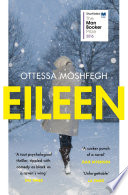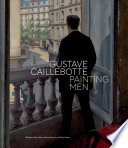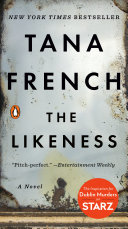Discover our list of authors like Ottessa Moshfegh, who weave complex tales of unsettling psychological suspense that leap off the page.
The psychological suspense genre has a rich history spanning multiple decades. It first arrived as a subgenre of crime and legal thriller novels but soon developed into its own genre. Writers in this niche are often influenced by masters such as Edgar Allan Poe, Wilkie Collins, and Daphne du Maurier. The authors on our list have become masters in their own right, often crafting diabolical tales that leave readers’ minds reeling.
New Englander Ottessa Moshfegh stands out as one of the most skilled at weaving plots that twist readers’ perceptions of what’s real and what’s imagined. Her debut novel, Eileen, was shortlisted for the Man Booker Prize and the National Book Critics Circle Award. It won the PEN/Hemingway Award for debut fiction. Subsequent books by Moshfegh have hit the New York Times Bestseller list, cementing her position as a psychological suspense novelist with many more good reads to offer.
What sets Moshfegh apart is her ability to create deeply flawed, unreliable narrators who inhabit morally ambiguous worlds where nothing is quite as it seems. Her prose combines literary sophistication with visceral psychological insight, creating stories that are both beautiful and deeply unsettling. Her exploration of isolation, mental illness, and the darker aspects of human nature has influenced a new generation of writers working at the intersection of literary fiction and psychological thriller.
For more recommendations, you might also enjoy exploring authors like Harlan Coben, authors like Gillian Flynn, best detective novel series.
Must-Read Authors Like Ottessa Moshfegh
1. Tana French, 1973
Tana French is a contemporary American-Irish writer celebrated for contributing to the crime fiction genre. Born in Vermont, she lived in various countries worldwide before settling in Dublin, Ireland, where she previously attended Trinity College. French is acclaimed for her psychological depth and complex character portrayals, and her debut novel, In the Woods, garnered several prestigious awards, including the Anthony, Edgar, Barry, and Macavity awards for Best First Novel.
One of her standout novels, The Likeness, presents an intriguing premise: Detective Cassie Maddox is called to a crime scene only to find that the murder victim bears a striking resemblance to her and even carries identification with an alias she once used. What follows is an intricately woven narrative of Maddox infiltrating the dead woman’s life, moving into her home, and delving into her secrets. The Likeness was on the New York Times bestseller list for several months.
French shares Moshfegh’s gift for creating psychologically complex protagonists who blur the lines between investigator and subject, observer and participant. Like Moshfegh, French excels at exploring themes of identity, authenticity, and the stories we tell ourselves to survive. Her lyrical prose style and deep psychological insight into her characters’ motivations make her essential reading for Moshfegh fans seeking the same blend of literary sophistication and psychological complexity.
French’s 2025 releases continue to explore how the past haunts the present, a theme that resonates strongly with Moshfegh’s examination of how trauma shapes identity and perception.
“I found out early that you can throw yourself away, missing what you’ve lost.”
Tana French, The Likeness
2. A.J. Finn, 1979 -
A.J. Finn, pseudonym of American author Daniel Mallory, came into the spotlight with his debut thriller novel, The Woman in the Window. Before his writing career, Mallory was a senior publishing executive at William Morrow and Company. His debut novel immediately hit the bestseller list and was translated into numerous languages worldwide. The novel also gained attention due to the controversy surrounding Mallory’s alleged misrepresentation of his personal life and professional history.
The Woman in the Window is a psychological thriller that centers around Anna Fox, an agoraphobic woman who spends her days inside her New York City brownstone. Her life takes a dark turn when she witnesses something shocking through her window involving her new neighbors. As Anna becomes increasingly obsessed with uncovering the truth, her sanity comes into question.
The novel explores themes of paranoia, perception, and the blurred lines between reality and imagination. With its suspenseful plot and complex characterization, The Woman in the Window immerses readers in a twisted and suspenseful tale of secrets and deception.
Like Moshfegh, Finn creates an unreliable narrator whose grip on reality becomes increasingly tenuous as the story progresses. Both authors excel at making readers question what’s real and what’s imagined, using their protagonists’ psychological instability as a central plot device. The exploration of isolation, addiction, and the ways trauma distorts perception connects directly to Moshfegh’s thematic concerns.
“As Shaw also said, alcohol is the anesthesia by which we endure the operation of life. Good old Shaw.”
A.J. Finn, The Woman in the Window
3. Megan Miranda, 1972 -
Megan Miranda is an American author known for her psychological suspense novels. Miranda, a former high school science teacher, pursued her love for writing and gained recognition with her debut novel, Fracture. She continued to pen multiple successful young adult novels before transitioning into adult fiction. Her adult debut, All the Missing Girls, was a New York Times bestseller and received considerable acclaim.
All the Missing Girls stands out due to its unusual narrative structure: the story is repeated over two weeks in reverse chronological order. This innovative structure enhances the suspense as the protagonist Nic Farrell returns to her hometown to unravel the mystery of two missing girls, one going missing in the present and one ten years ago. With the intriguing setup and unconventional timeline, readers are kept on their toes following the engaging narrative in this book.
Miranda’s experimental approach to narrative structure echoes Moshfegh’s willingness to play with traditional storytelling conventions. Both authors understand that the way a story is told can be just as important as the story itself, using structural innovation to enhance psychological impact. Like Moshfegh, Miranda excels at exploring how past trauma continues to shape present behavior, particularly in small-town settings where secrets have long shadows.
“We were a town full of fear, searching for answers. But we were also a town full of liars.”
Megan Miranda, All the Missing Girls
4. Karin Slaughter, 1971 -
American crime writer Karin Slaughter has been published in 37 languages and sold over 35 million copies of her books worldwide. Slaughter was born in a small Georgia town and has her home state as the setting in many of her novels. Known for her gritty and graphic storytelling, she debuted in 2001 with Blindsighted, which became an international success and was translated into 27 languages.
Pretty Girls is an incredibly intense and disturbing read among her wide repertoire of crime novels. It’s a tale of two estranged sisters who come together following the disappearance of their third sister, who disappeared decades earlier, and the more recent disappearance of other girls. As the sisters unravel their family’s dark past, Slaughter doesn’t shy away from graphic scenes, giving a raw and unflinching look at the horrific events.
While Slaughter’s work is more explicitly violent than Moshfegh’s, both authors share an unflinching commitment to exploring the darkest aspects of human nature. Like Moshfegh, Slaughter creates complex female protagonists who must confront uncomfortable truths about themselves and their families. Both authors excel at showing how violence and trauma ripple through generations, affecting not just immediate victims but entire family systems.
“This was the beginning of something that might lead to everything or nothing at all.”
Karin Slaughter, Pretty Girls
5. Mary Kubica, 1978 -
Mary Kubica is an American author of psychological thrillers. As a Chicago native, she holds a Bachelor of Arts degree from Miami University in Oxford, Ohio, in History and American Literature. She debuted in 2014 with The Good Girl, an Indie Next pick and a New York Times and USA Today bestseller. Her books have been translated into over thirty languages and have sold over two million copies worldwide.
The Good Girl revolves around the abduction of Mia Dennett, the daughter of a prominent Chicago judge. Told through multiple perspectives, including Mia’s mother, the kidnapper, and a detective assigned to the case, the story unravels the complexities of Mia’s disappearance and the secrets that lie beneath the surface. As the investigation progresses, unexpected connections and betrayals come to light. The novel delves into themes of identity, family dynamics, and the blurred lines between good and evil.
Kubica shares Moshfegh’s interest in exploring how extraordinary circumstances reveal hidden aspects of seemingly ordinary people. Both authors excel at creating situations where characters must confront uncomfortable truths about themselves and their relationships. Like Moshfegh, Kubica understands that the most compelling psychological suspense often emerges from domestic settings and family dynamics.
“But with every dollar I earned was also the knowledge that I belonged to someone other than me.”
Mary Kubica, The Good Girl
6. Clare Mackintosh, 1976 -
British author Clare Mackintosh spent twelve years in the police force before eventually turning to writing. Her debut novel, I Let You Go, was a Sunday Times bestseller and the fastest-selling title by a new crime writer. It also won Theakston’s Old Peculier Crime Novel of the Year Award. Her subsequent books have continued to be received with critical and commercial success.
I Let You Go is a profoundly emotional psychological thriller where a tragic accident sets off an unstoppable chain of events revealing shocking secrets. It follows the life of Jenna Gray, a woman haunted by a tragic accident. After a hit-and-run incident claims the life of a young boy, Jenna seeks solace by moving to a remote coastal town. She becomes entangled in a web of secrets and lies as she tries to rebuild her life. Meanwhile, the police investigator, haunted by the unsolved case, continues to search for the truth.
Mackintosh’s background in law enforcement brings authenticity to her psychological portraits of both criminals and victims, much as Moshfegh’s deep psychological insight brings authenticity to her character studies. Both authors excel at exploring themes of guilt, redemption, and the ways people rationalize their actions. Like Moshfegh, Mackintosh understands that the most interesting stories often emerge from examining the gray areas of human morality.
“She crouches beside him, searching frantically for a pulse.”
Clare Mackintosh, I Let You Go
7. Alex Michaelides, 1977 -
Alex Michaelides is a British author and screenwriter of Cypriot descent. Born and raised in Cyprus, he moved to England to study English literature at Cambridge. He later earned a postgraduate degree in screenwriting from the American Film Institute in Los Angeles. His debut novel, The Silent Patient, quickly gained international recognition and topped the New York Times Bestseller list. It also won the Goodreads Choice Awards for Best Mystery & Thriller in 2019.
The Silent Patient explores the story of Alicia Berenson, a famous painter who abruptly stops speaking after allegedly shooting her husband, and Theo Faber, a psychotherapist determined to uncover the truth. As Theo delves deeper into Alicia’s mysterious past and her time at a psychiatric facility, he uncovers shocking secrets and a web of deceit. With a twist-filled narrative and psychological suspense, this book explores themes of trauma, obsession, and the complexities of the human mind.
Michaelides shares Moshfegh’s fascination with unreliable narrators and the ways mental illness affects perception and reality. Both authors excel at creating characters whose psychological complexity drives the narrative, using their protagonists’ mental states as both subject matter and storytelling device. The exploration of art, creativity, and the thin line between genius and madness resonates with themes found throughout Moshfegh’s work.
“During the trial, the judge took a dim view of Alicia’s persistent refusal to speak.”
Alex Michaelides, The Silent Patient
8. C.L. Taylor, 1973 -
C.L. Taylor is a British author known for her psychological crime thrillers. Taylor was born in Worcester, England, and spent her early career working in graphic design and marketing before turning to writing full-time. Her novels have sold over a million copies, been number one on all ebook platforms, and been translated into over 20 languages. She also won the Best Crime Novel award at the inaugural Amazon Publishing Readers’ Awards.
Sleep is among her most recognized works. It follows the story of Anna, a woman attempting to escape her troubled past and feelings of guilt. She takes up a job at a hotel on a remote Scottish island, seeking solace and a fresh start. However, her plans take a dark turn when she discovers that one of the guests is a killer. As Anna becomes entangled in the dangerous situation, the plot unfolds with gripping intensity.
Taylor’s exploration of characters trying to escape their past while being pulled back into dangerous situations mirrors Moshfegh’s interest in protagonists who can’t escape their own psychological patterns. Both authors excel at creating claustrophobic atmospheres where isolation becomes both refuge and trap. Like Moshfegh, Taylor understands that the most compelling psychological suspense often emerges from characters’ internal conflicts rather than external threats.
“Those who have a mother, treasure her with care, for you never know how much you love her until she is not there.”
C.L. Taylor, Sleep
9. Jane Harper, 1980 -
Jane Harper is an English-born Australian author best known for her crime novels set in Australia. Harper was born in Manchester, England, but moved to Australia with her family when she was eight. After a career in journalism, she turned to writing fiction and won the Victorian Premier’s Literary Award for an Unpublished Manuscript for her debut novel, The Dry.
The Dry is a compelling crime novel set in a small drought-stricken Australian town. The protagonist, Aaron Falk, returns to his hometown for the funeral of his childhood friend and becomes embroiled in the investigation of the mysterious circumstances surrounding his death. Harper’s atmospheric writing vividly evokes the oppressive heat and isolation of the Australian Outback.
Harper’s mastery of atmospheric writing and her ability to use setting as a psychological force resonates strongly with Moshfegh’s approach to environment as character. Both authors excel at creating oppressive atmospheres that reflect their protagonists’ internal states. Like Moshfegh, Harper understands how small-town secrets and long-buried guilt can poison entire communities, making the setting itself a source of psychological tension.
“Both boots and every pocket of her jeans had been packed tight with stones.”
Jane Harper, The Dry
10. Peter Swanson, 1968 -
Peter Swanson is an American author known for his suspenseful thriller novels. Born in Concord, Massachusetts, he has degrees from Trinity College, the University of Massachusetts at Amherst, and Emerson College. His novel, The Kind Worth Killing, won the New England Society Book Award and was a finalist for the CWA Ian Fleming Steel Dagger.
The Kind Worth Killing follows the story of two strangers, Ted and Lily, who meet during a late-night flight. What starts as an innocent encounter quickly evolves into a deadly game of what-ifs. As the tension rises, the plot takes a dark turn involving murder. Swanson’s skillful storytelling builds suspense, with morally ambiguous characters that engross readers.
Swanson’s exploration of moral ambiguity and his creation of characters who gradually reveal their capacity for darkness aligns perfectly with Moshfegh’s interests. Both authors excel at showing how ordinary people can become involved in extraordinary circumstances, often through a series of seemingly small moral compromises. Like Moshfegh, Swanson understands that the most compelling psychological suspense often emerges from exploring the darker impulses that lie beneath civilized surfaces.
“Everyone dies, but not everyone has to see someone they love with another person.”
Peter Swanson, The Kind Worth Killing
These authors share Ottessa Moshfegh’s commitment to psychological complexity, unreliable narration, and the exploration of characters who exist in moral gray areas. Whether you’re drawn to atmospheric crime fiction, experimental narrative structures, or deeply flawed protagonists, each writer on this list offers the same blend of literary sophistication and psychological insight that makes Moshfegh such a distinctive voice in contemporary fiction. For readers seeking the unsettling beauty of stories that challenge perceptions of reality and morality, these authors provide rich territories to explore.





